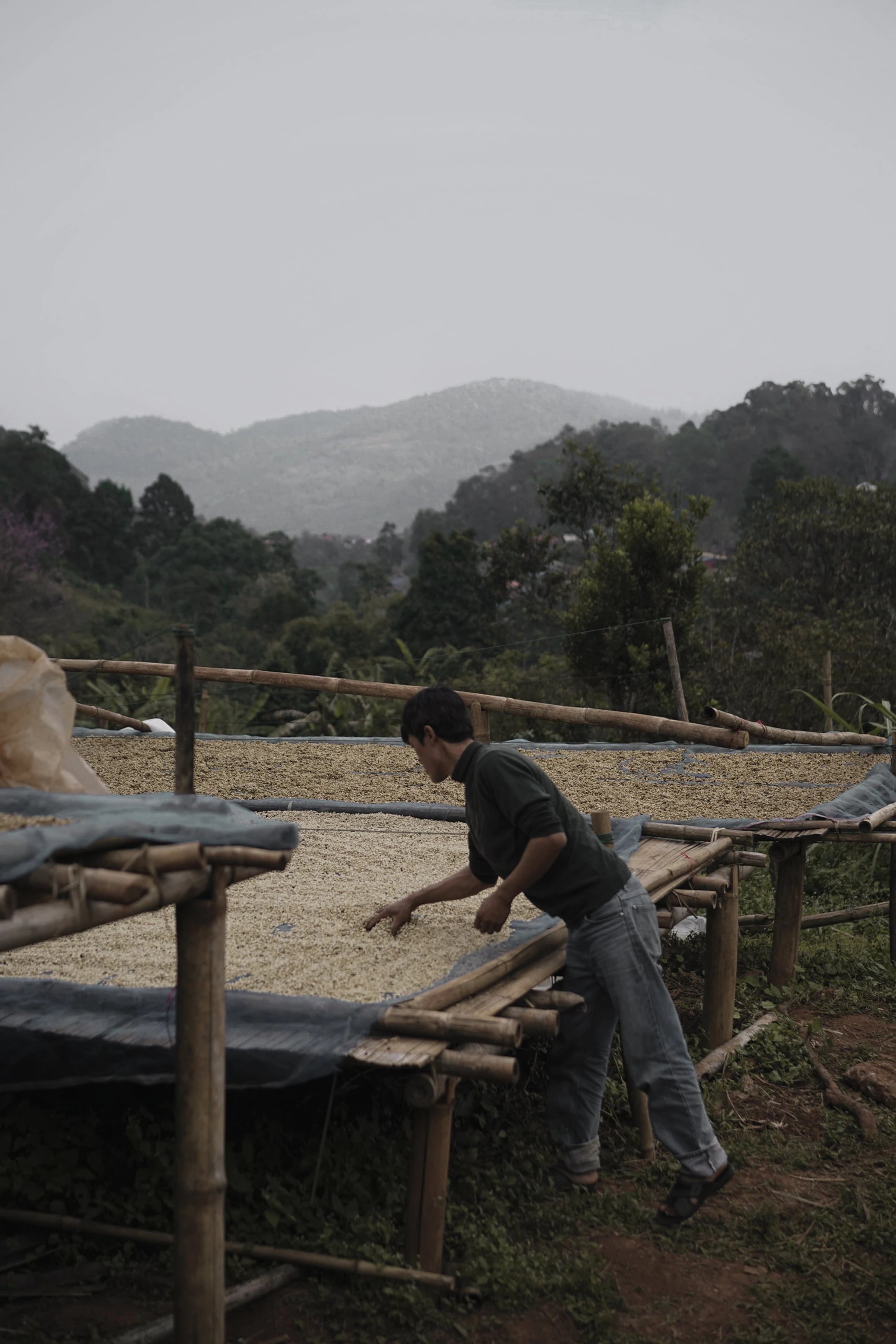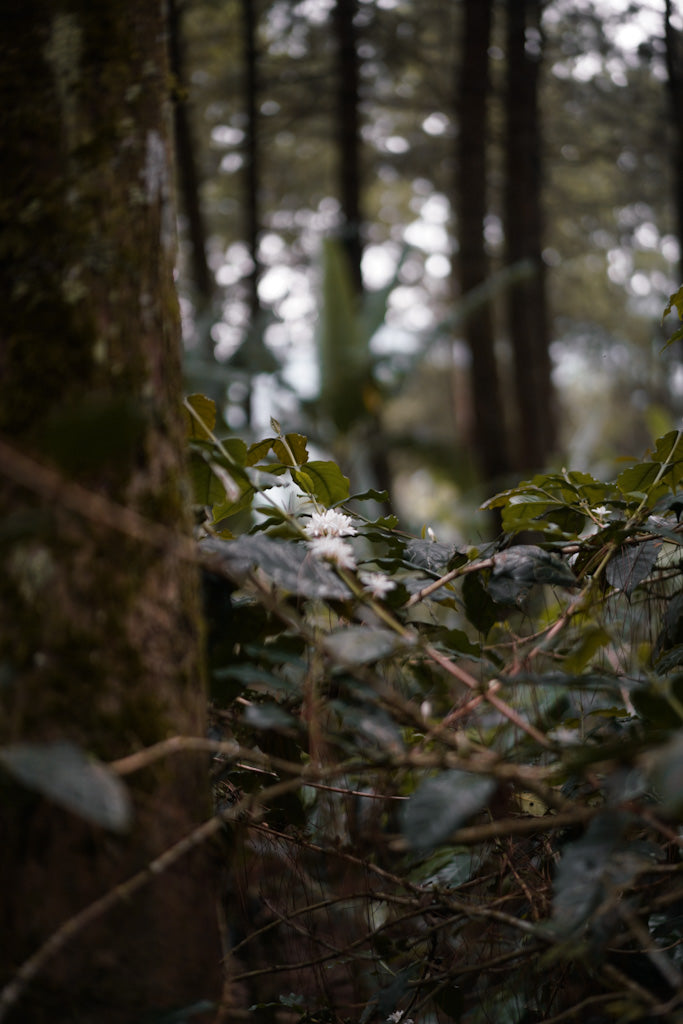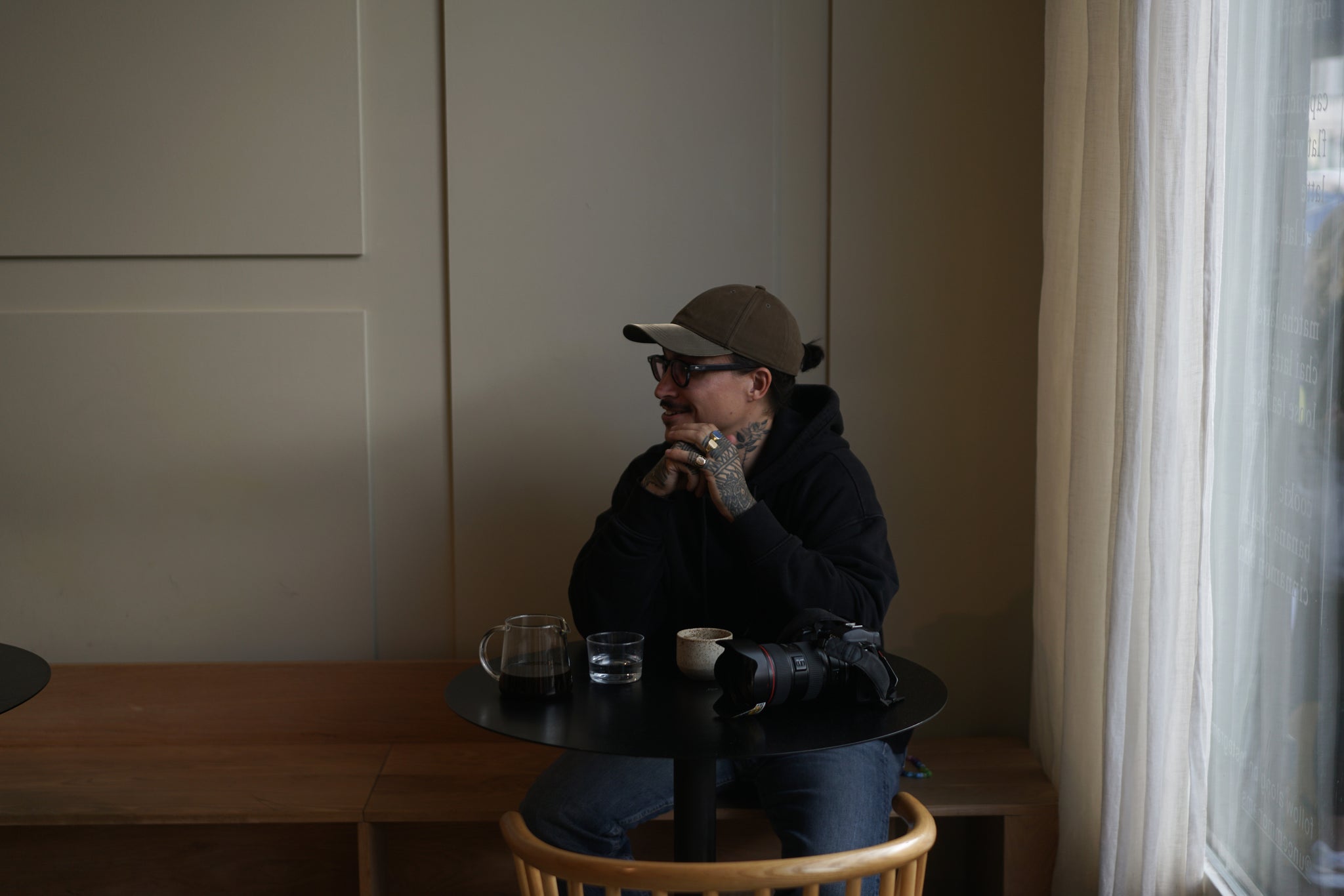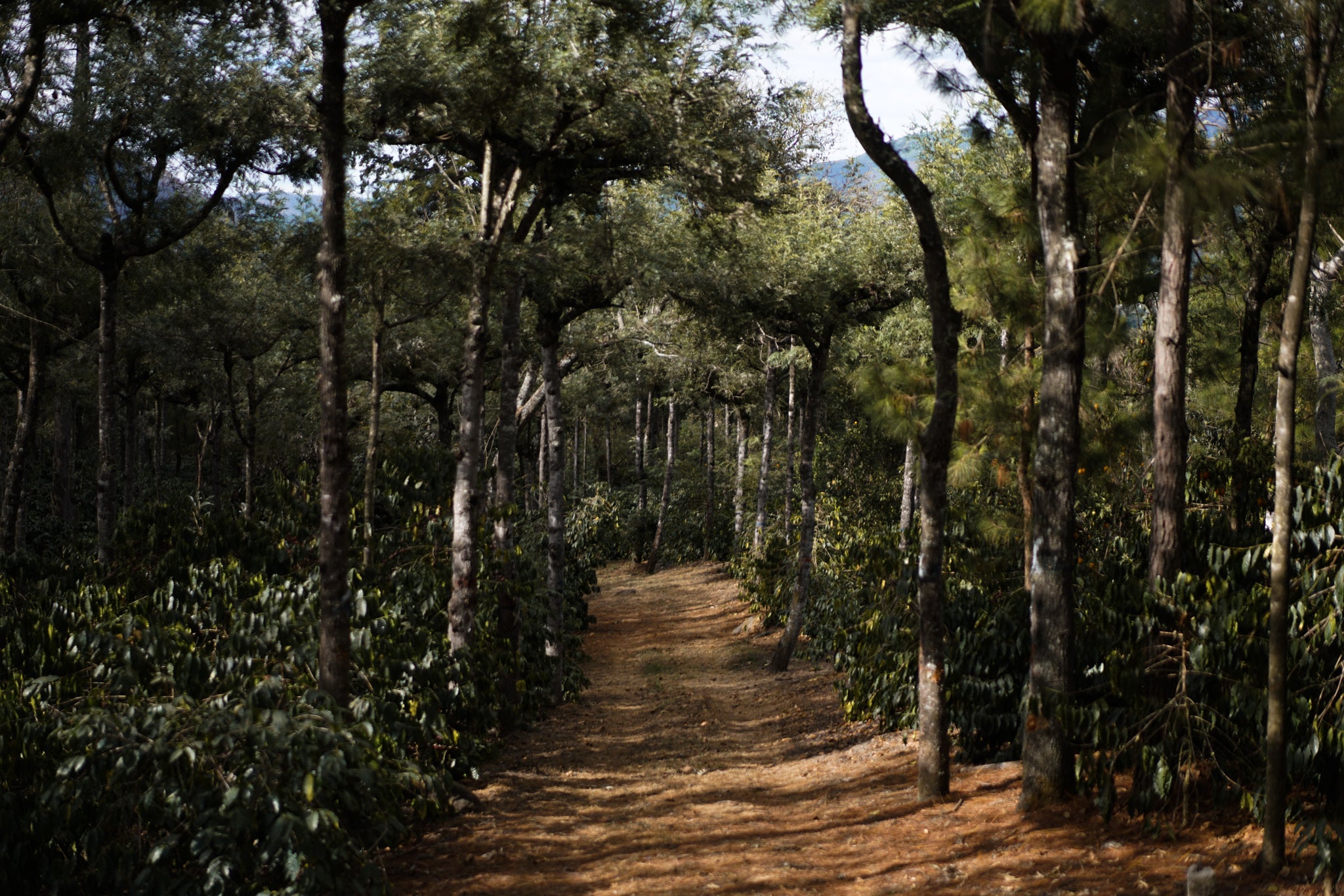We are aiming to meet and build relationships with the passionate producers behind all of the coffees we offer. This way we can find ways to support each other and work better together as a team. Our quest has led us along a winding road to Doi Panghkon, a small village in the hills outside of Chiang Rai, Northern Thailand.
This is where we met up with Fuadi, the co-founder of coffee exporting company Beanspire. Fuadi and his partner Jane are doing impressive work helping Thai coffee farmers develop and export specialty coffee to the international market.
Doi Pangkhon directly translates to ‘Timberland Peak’ and is the home of approximately 300 Akha hill-tribe Farmers who have been growing and producing coffee for the last 40 years. The Royal project, which was implemented to eradicate the production of opium in the Golden triangle in the early 80’s, has successfully turned Thailand into a booming coffee growing origin.
Thailand is like no other origin in the world. Most Origins export 90% of their green coffee, but here, 90% of green specialty coffee actually remains within the country. The cafe scene is omnipresent in Thailand and coffee prices are equivalent to, if not more than, European prices. Many young farmers, from 25 to 30 years of age, return to these lands after completing their degrees, as coffee is a lucrative business for young professionals.
The Chiang Rai region is located at 1250 - 1500 metres above sea level, right in ‘the bean belt’ and is therefore an excellent environment to grow coffee. The soil here absorbs the mountain rainwater, enriching it with minerals that create ideal conditions for coffee plants to thrive.
Fuadi and Jane have successfully introduced new processing methods that have significantly upped the cupping scores of their coffees. They now use a Kenya-style washed process which involves double fermentation. All coffee is hand picked, depulped, dry fermented for 12 hours, wet fermented for 18 hours, washed with mountain water, then sun dried on raised bamboo beds. This practice is uncommon in Thailand but with the fantastic conditions and abundance of mountain water in Doi Pangkhon, this process gets the best out of their coffee. The Kenyan washed gives a super chocolatey and cinnamon espresso flavour.
Due to the abundance of water they are able to experiment with different washing processes, one highlight being the Kenyan washed/double washed. First of all, they load the beans in a fermentation tank and add wild yeast, giving the coffee a funky, playful profile. After 24 hours the beans are wet fermented for another 24 hours and then once more. The wet part evens out the fermentation and makes the coffee much more clean/stable. Ultimately, the coffee is then dried and rotated hourly on raised beds in the sun. This process is extremely clean and has a great blueberry sweetness. On top of that, the beans are much more resilient to weather and the results are very consistent.
Honey process, a processing style originated in Costa Rica, has been a great success in the region. Producing a jammy mouthfeel and blackberry tasting profile, it is something very different to what we’d expect from Thailand’s traditional flavour profiles. To achieve this, they have to take the cherry off and leave the sweet residue (mucilage) on the bean to dry on raised beds. This allows the sugars to ferment and often makes the beans stick together - reminiscent of honeycomb. In Doi Pangkhon, they are producing black honey, here the fermentation process is faster and more flamboyant, almost tasting like a natural, but cleaner.
Finally, ticking off all 3 processing methods, Doi Pangkhon also experiments with natural process, which is another processing method that requires no use of water. This year they selected their yellow Catamor varietal, leaving on the cherries and the stems to dry on beds. By leaving the stem on, it resulted in a much slower, controlled fermentation process. Spending more time encased within the cherry the bean takes on many characteristics of the cherry resulting in a rich, full bodied, cup with a pineapple-like flavour profile.












